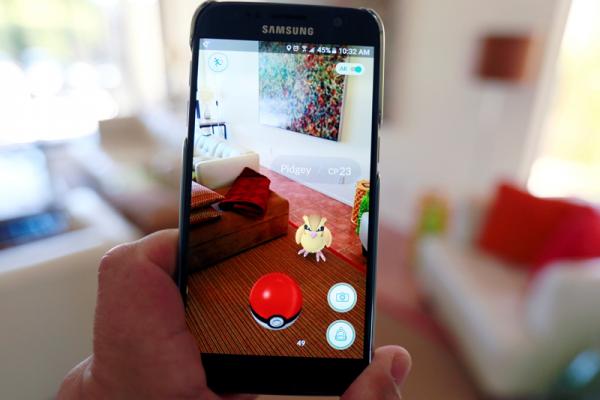If your church is suddenly overtaken by millennials with their heads stuck in their phones, you can thank Pokemon.
Yes, Pokemon. The Nintendo-owned franchise, which produced colorful cards and later video games, is back — this time luring young adults out of their apartments and into museums, parks, and places of worship.
How? Technology, of course. Pokemon’s newest iteration is a free augmented reality app that brings its now-adult fans’ fantasies to life.
The app uses players’ phone GPS to locate where they are, then makes Pokemon appear on the phone screen in real-life locations so players can “catch” all 151 virtual creatures.
The app has become a viral sensation among teens and young adults, overtaking Tinder on Android and on course to beat Twitter in daily users. Millennials are walking around with their phones, finding “PokeStops” and “Gyms” at local places of interest: libraries, parks, art galleries, subway stations, zoos, and more.
But, as some gamers are discovering, virtual Pokemon can also be found at several churches, too.
When your church has three different poke stops and is also a gym you attract a lot of people to your parking lot. #PokemonGo
— Janessa Smith (@Janessa_Smith) July 11, 2016
My first two pokestops on Pokemon Go were at a church and thought God was telling me something. Then my 3rd was KFC and I knew he was right
— Jared Smith (@_jaredsmith13) July 7, 2016
This game is trying to make me go to church #pokemongo pic.twitter.com/h3SX4uHMNE
— ☠Terrible Horrible☠ (@thelfr) July 7, 2016
How do you get six 20-something guys to sit on the steps of your church? Your church is a gym in #PokemonGo. pic.twitter.com/TAYTqXrZKB
— Chris Martin (@ChrisMartin17) July 10, 2016
The game’s PokeStops and Gyms, where players can gather in the real world to capture and battle their virtual Pokemon, are based on user-submitted locations. And one of these Gyms is at 701 SW 12th Street in Topeka, Kansas: the home of the virulently anti-gay Westboro Baptist Church.
When a user named LoveIsLove took the Gym over, it sparked a back-and-forth battle between LGBT Pokemon players and the hate group.
Someone took @WBCsigns as a #PokemonGO gym and is guarding it with a Clefairy named LOVEISLOVE
— Daniel Weichman (@LightheartedDan) July 9, 2016
Go home, we're done pic.twitter.com/P9LfqUfzxw
EVERYTHING, real or virtual, enables proud sin in america. That's a sign of DOOM! #PokemonGo https://t.co/HyQvNAx90A pic.twitter.com/kJyRFXCxmy
— Westboro Baptist (@WBCSaysRepent) July 11, 2016
The Westboro Baptist Church’s response, “recruiting” both Jigglypuff and Pikachu to “deal with the sodomite Loveislove Clefairy” seems to have only drawn more pro-LGBT youth to the game.
I might have to play Pokémon Go just bc they trolled the living hell out of that hate group Westboro Baptist.
— Froliciously Normal (@lvilleshawn) July 11, 2016
Church attendance — or at least skulking around church parking lots — isn’t the only unintended consequence of the game.
Some players have warned about racism and suspicion people of color may face while exploring their neighborhoods for Pokemon, while others have found the game tohelp with weight loss. There are reports of armed robbers using the game to lure victims, and a 19-year-old Wyoming resident said she found a dead body while looking for Pokemon.
It didn’t take long for the app to capture church leaders’ interest. If your church is designated as a PokeStop or Gym, The Wardrobe Door blog now has an eight-step guide to ride the wave.
Unfortunately for churches trying to draw in youth, it doesn’t look like there’s a way to register a location as a PokeStop or Gym yet. But turning your church into a “charging station” for players, like Maine’s Columbia Street Baptist Church did, might do the trick.
Columbia Street Baptist Church is a charging station for those playing Pokémon Go @WLBZ2 @WCSH6 pic.twitter.com/4Dlj2OMXbR
— Jackson Grimm (@JackCameraman) July 11, 2016
Got something to say about what you're reading? We value your feedback!
